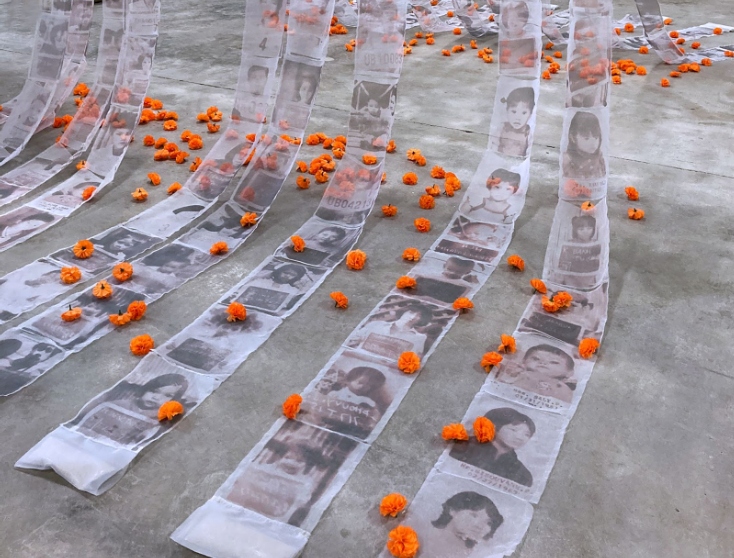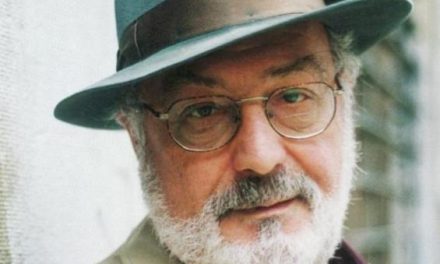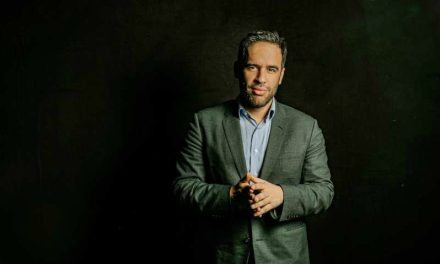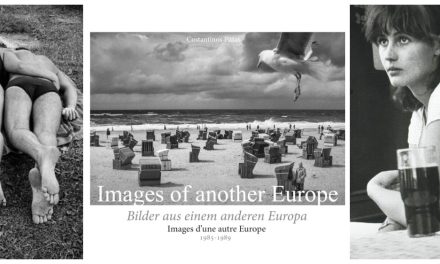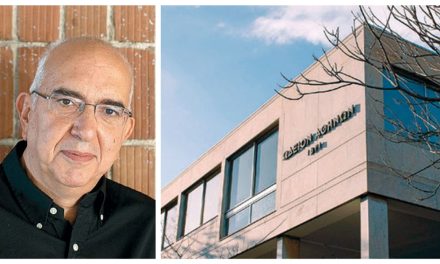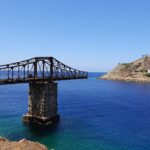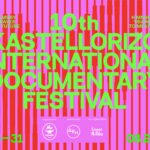The exhibition and conference “Art Communicating Conflict Resolution” will take place in Thessaloniki in the summer of 2022, exploring art’s possible positive effects on conflict resolution efforts.
The art exhibition, featuring works by 39 internationally-renowned artists, will open on June 29 at the Casa Bianca, home to the Municipal Art Gallery of Thessaloniki, with the support of Thessaloniki Mayor Konstantinos Zervas and Thessaloniki Deputy Mayor of Culture and Tourism Maria Karagianni, and it will run through July 31, 2022.
Also, on June 30, a one-day conference will be held, sponsored by the UNESCO Chair of Intercultural Policy for an Active Citizenship and Solidarity, University of Macedonia, Thessaloniki, with the theme “Art Communicating Conflict Resolution: An Intercultural Dialogue”.
Finally, on July 1, the program features organized visits and tours of Thessaloniki’s historic archeological and Byzantine sites, including museums, Byzantine churches, the Jewish Museum of Thessaloniki, archeological museums and sites.
The exhibition and conference are organized as part of Conflict and Art, an international initiative led by Vasia Deliyianni, a curator and artist based in Washington, DC. The project has been inspired by the book Can Art Aid in Resolving Conflicts? (Frame Publishers, 2018) –a collaboration between Professor Jerry Wind at the University of Pennsylvania’s Wharton School and Professors Noam Latar and Ornat Lev-Er at IDC Herzliya University in Israel–, which constitutes a pioneering survey on the question: “can art aid in conflict resolution and therefore reduce global tensions and human suffering?”.
As part of the survey, the authorsspoke with more than 100 leading and emerging architects, artists, curators, choreographers, composers, and directors of art institutions around the globe, exploring the potentially constructive role of the arts in conflict resolution.
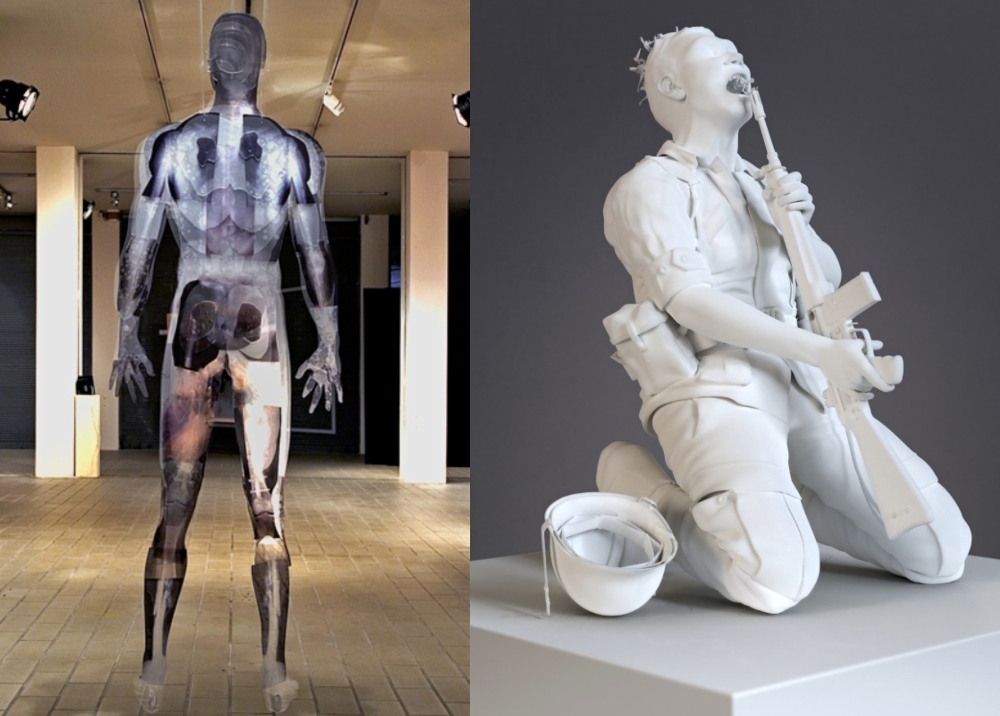 Left: Eleni Fotiadou, born and lives in Greece; Right: Babis Venetopoulos, born and lives in Greece
Left: Eleni Fotiadou, born and lives in Greece; Right: Babis Venetopoulos, born and lives in Greece
The art exhibition will feature works by 39 artists, including: activist and multimedia artist Adeela Suleman from Pakistan, renowned journalist, author and activist Asra Q. Nomani, born in India and living in the United States, and media artist Dor Guez from Israel. They also include: architect and educator Theodore Spyropoulos from the United Kingdom, Maria Karametou from the United States, and Valerio Rocco Orlando from Italy.
The exhibition also features artists from Greece and Cyprus, including: audiovisual and installation artist Eleni Fotiadou, painter Yiannis Fokas, and digital artist Babis Venetopoulos from Thessaloniki, and artists Melina Shukuroglou, Vicky Pericleous, and Efi Savvides from Cyprus. And, in a special feature, the exhibition includes a collection of photographs from eight artists from Oman.
Arguably the most iconic of the exhibits is “The Struggle Series” by iconic South African leader Nelson Mandela. Some of these artists had also been featured in an earlier exhibition called “Art: Key to Conflict Resolution” –also curated by Vasia Deliyianni as part of her Conflict and Art project– which was hosted at the at the Serafeio Athletic & Community Complex of the City of Athens in July 2019.
You can view the full program for the Thessaloniki exhibition and conference here, and register here.
Greek News Agenda spoke* with curator and museum specialist Vasia Deliyianni about the “Conflict and Art” initiative, the special meaning of Thessaloniki as its current host-city and the potential power of art in a world marred by conflict.
 Nelson Mandela (1918-2013), anti-apartheid revolutionary and first president of South Africa
Nelson Mandela (1918-2013), anti-apartheid revolutionary and first president of South Africa
You had already curated the exhibition “Art: Key to Conflict Resolution”, which was hosted at the Serafeio Athletic & Community Complex of the City of Athens in July 2019, featuring works by 23 visual artists. Would you say that this is a version 2.0 of the original exhibition?
Our new exhibit in Thessaloniki in the summer of 2022 is a continuation of the Conflict and Art project that started with the publication of the book, Can Art Aid in Resolving Conflicts? and the curation of our exhibit in 2019 in Athens. The exhibition was tremendously successful in Athens and very well attended. With the world, we faced the challenges of COVID-19 and our emergence in Thessaloniki is testimony to the resilience of the human souls –and artists– in facing adversity. We plan to have our always-evolving exhibit on permanent travel in different countries, including Cyprus, Israel, France, and the United States.
In which ways was the project inspired by the book Can Art Aid in Resolving Conflicts? and what more does it bring to the table, especially with regard to Greek contemporary artistic production?
I was inspired by the theme of the book, which poses an ever-present question about whether art can aid in resolving conflict. Overwhelmingly, artists of all types answered the question in the affirmative –with a resounding “Yes”– illustrating through their work that art offers us an alternative to conflict resolution when other avenues, such as politics, cannot mediate conversations or offer solutions. The arts can be the vehicle to communication and understanding. From there, a lot of conflict resolution can happen.
As a curator, I was also inspired by the amazing work of the international visual artists and activists in the book, not to mention the musicians, architects, museum specialists, actors, and others also featured in the book. I got the approval and blessing of the authors to contact the visual artists in the book, and I started work on the 2019 exhibit in Greece and then this 2022 exhibit in Thessaloniki, accompanied by the book’s launch and conferences and roundtable discussions around the themes in the book.
Greece, as the land of democracy, is the appropriate place for these exhibits. Greek artists in the Diaspora and at home in Greece have long been dealing with these issues. Yes, art can be political, and Greeks care deeply about democracy and freedom, human rights, and justice. While they address issues of conflict and suggest conflict resolutions, Greek artists also need more international exposure. With this exhibition, we will amplify their work to the world expose them to different audiences. Greece is the host of some of the most powerful, imaginative, and innovative artists I have ever met, and it is an honor to work with them.
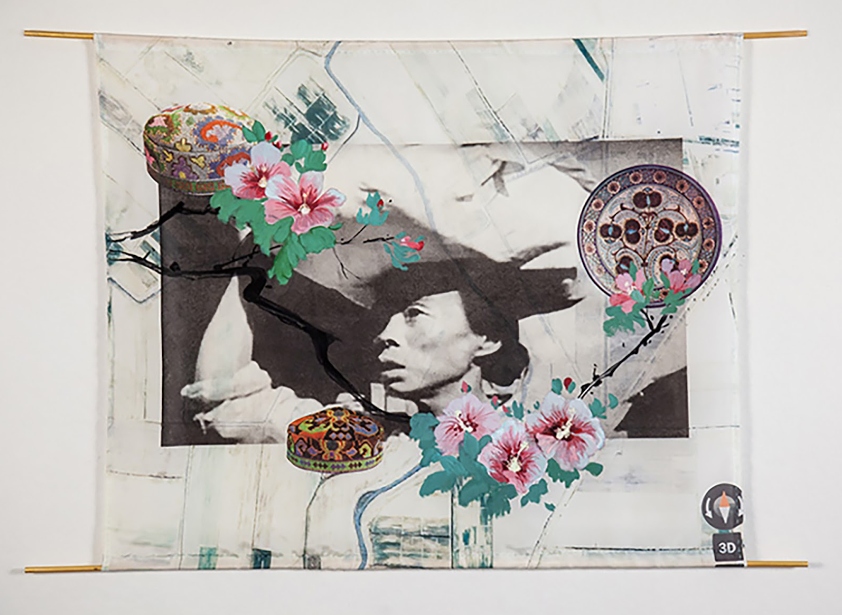 Evgenia Kim, born in Uzbekistan, former USSR from Korean parents, lives in the USA
Evgenia Kim, born in Uzbekistan, former USSR from Korean parents, lives in the USA
Does the rich multicultural history of the city of Thessaloniki bring an added value to the upcoming project?
It is very poignant for me to bring this exhibit to Thessaloniki. It is the city of my birth, and it has been the crossroad of many civilizations, with layers and layers of different cultures, religions, languages built upon each other. It is my honor as a daughter of Thessaloniki to bring this exhibit to our city.
The Greeks of Thessaloniki are multicultural and multilingual, and for the last two decades, they have been highly exposed to waves of refugees, offering them harbor in a very humane way. As a witness to conflict throughout history and as a locale often in conflict itself, Thessaloniki is the perfect place to host this profound exhibit and conference and communicate a simple and important message of conflict resolution.
Since ancient times, the people of Thessaloniki have been communicating through the visual arts, theater, music, and dance. In modern times, the city is rapidly growing culturally, and our exhibit embodies the richness and depth of our city today, at the crossroads of civilization.
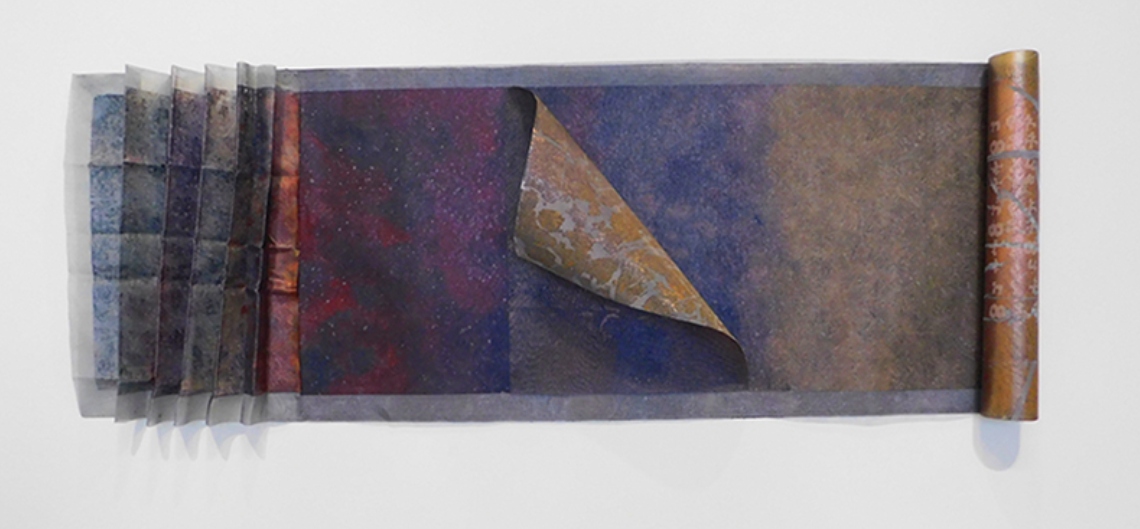 Kebedech Tekleab, born in Ethiopia, lives in the USA
Kebedech Tekleab, born in Ethiopia, lives in the USA
At a moment in history when conflicts have deep and tragic effects on several societies very close to us, could someone be deemed a hopeless romantic for counting on the peacemaking power of art?
The romantics are more pragmatic sometimes, because they believe they can accomplish successes others do not even try to do. In the 1990s, I started curating art exhibits for the World Bank to complement the World Bank’s bold mission of international development, and I have seen how a financial institution can effectively use the power of the arts to communicate its messages for building human capacity.
Over the last decade, we have heard a lot about “art and diplomacy” and “cultural diplomacy” in Washington, DC, a seat of power to the world. We have heard: “Works of art can be ambassadors of our deepest collective wisdom.” For example, the Art in Embassies program, run by the US Department of State, reaches 189 nations and is “engaged globally”, placing artworks in US embassies.
The arts are not the perfect way to solve conflict by far, but we must try this tool to complement politics and diplomacy. In his address at the 75th Cannes Film Festival, Ukrainian President Volodymyr Zelensky called on filmmakers to confront dictators, just as the American actor Charlie Chaplin satirized Adolf Hitler. President Zelensky referred to films, such as Francis Ford Coppola’s Apocalypse Now and Charlie Chaplin’s The Great Dictator, as speaking truth to power.
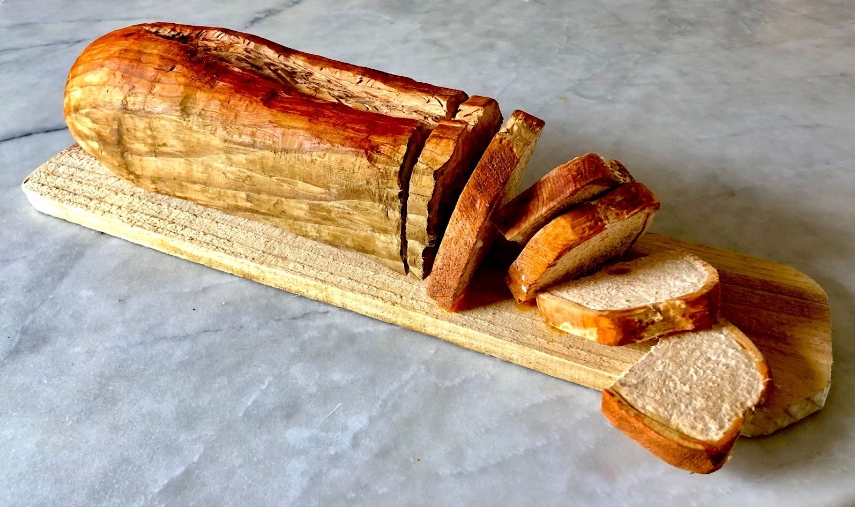 Jacqueline Maggi, born in Cuba, lives in the USA
Jacqueline Maggi, born in Cuba, lives in the USA
On March 31, 2022, the United Nations Chamber Music Society presented a Concert for Peace for Ukraine, among hundreds of concerts happening around the world, including inside Ukraine, using the power of music to sensitize the globe about the horrors of the war in Ukraine. “Music binds us together in these darkest moments. Through compassion and solidarity, the musicians of UN Chamber Music Society will perform a Concert for Peace for Ukraine”, the United Nations said, in promoting the concert.
We need to use everything we have got when it comes to resolving war and realizing peace. Our group – Conflict and Art – is using the arts in the hopes that the arts will help people communicate more effectively, understanding each other better, hopefully resolving conflicts and sharing each other’s humanity in sacred spaces such as Thessaloniki, Greece. We hope all who are able can join us in Greece. Please register at conflictandart.com, and if you cannot join us in person, please join us on Twitter, Instagram, Facebook and YouTube at @ConflictAndArt. Thank you!
*Interview by Nefeli Mosaidi (Intro photo: Sisavanh Houghton, born in Laos, immigrated to Thailand, lives in the USA)
Read also via Greek News Agenda: Early Christian and Byzantine Monuments of Thessaloniki; Three religions meet in the Castle of Ioannina

